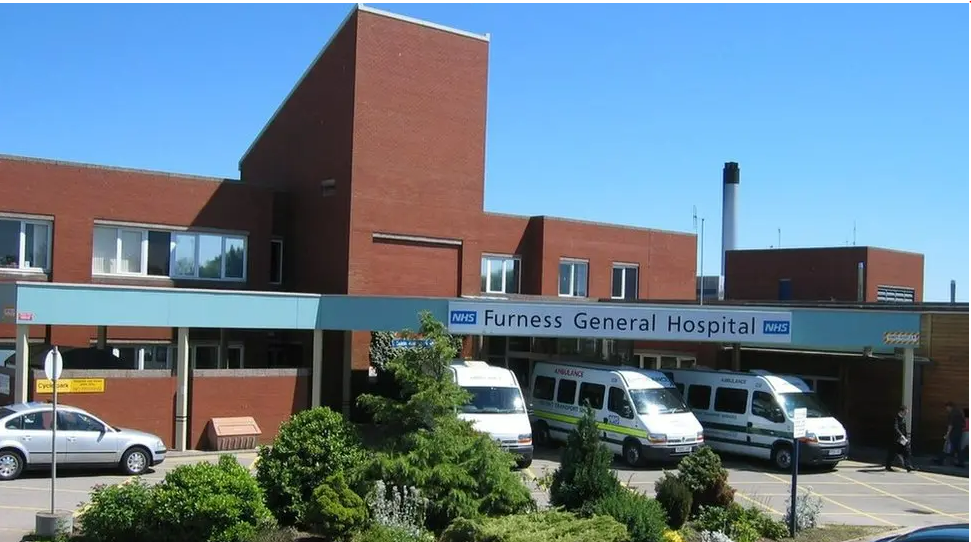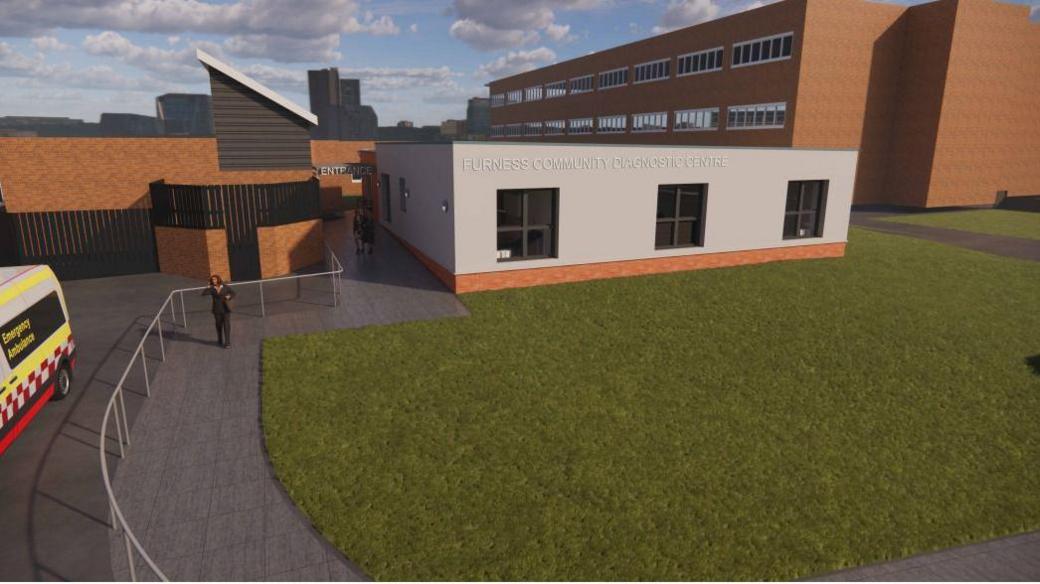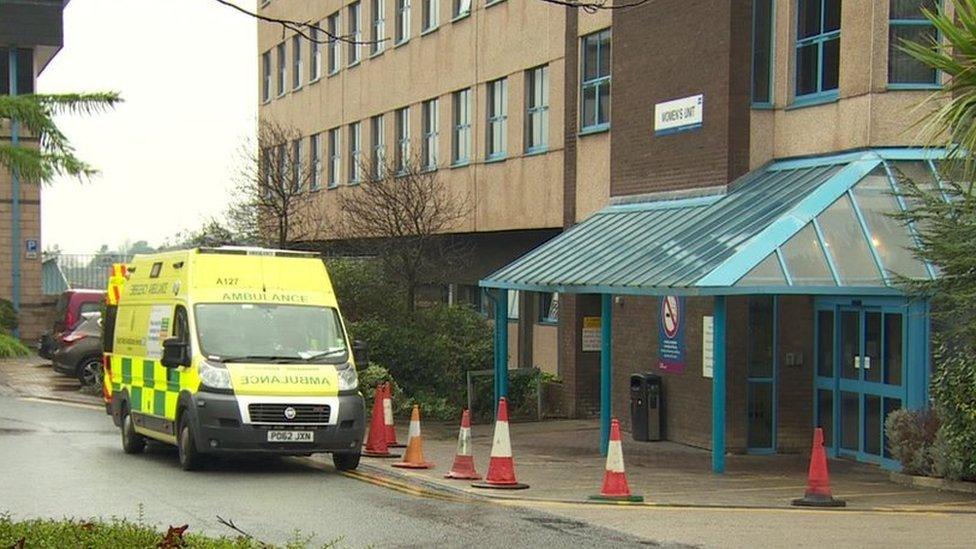Ward closure risks 'death by a thousand cuts' - MP

Labour MP Michelle Scrogham raised concerns about Furness General Hospital in Barrow
- Published
An MP has warned a ward closure risks a hospital suffering a "death by a thousand cuts".
The Abbey View palliative care ward at Furness General Hospital (FGH), Cumbria, would be closed without a public consultation, Labour MP Michelle Scrogham said.
It comes after the critical care unit in the same hospital stopped taking on the sickest patients in September.
The University Hospitals of Morecambe Bay NHS Foundation Trust (UHMBT) said the proposed closure of Abbey View would help patients receive the "right care, at the right time", and the critical care unit changes were an "interim measure" due to staffing.
Scrogham, who represents Barrow and Furness, wrote to the NHS Lancashire and South Cumbria ICB earlier this week, external.
She said a decision to close the ward did not consider the "future viability" of the hospital.
"There is a significant worry that without a proper action plan the hospital will suffer a 'death by a thousand cuts'," Scrogham said in her letter.
She called for a public consultation.

The sickest patients have been sent away from FGH because of a "deterioration in medical staffing"
A petition to prevent the closure of the Abbey View rehabilitation and palliative care ward received more than 1,300 signatures.
The organiser described it as a "lifeline for local patients".
The trust said it was consulting with staff over reducing beds in the ward from 20 to eight in January, with the rest considered for closure next August.
The UHMBT chief executive Aaron Cummins said the closure was part of a "bed reconfiguration".
Patients will instead be sent to Parkview Gardens Residential Home, which is set up for people who no longer need hospital care, but still need help to get well enough to go home.
Mr Cummins said: "I'd like to be clear that none of the proposed changes mean that we stop providing any services for patients - but may change where they are provided within the hospitals and the community."
'Interim measure'
Furthermore, since September, the hospital's critical care unit has been sending people needing "Level 3 critical care", including those with multi-organ failure, to Royal Lancaster Infirmary.
This means there are no intensive care facilities for the sickest patients in the whole of South Cumbria.
Clinical director for surgery and critical care at UHMBT Dr Wendy Craig said despite "intensive recruitment efforts", a lack of staffing posed a "risk to the safety of patients and colleagues".
"Please note that this is an interim measure due to a deterioration in medical staffing and it will be continually reviewed," Dr Craig said.
Follow BBC Cumbria on X, external, Facebook, external, Nextdoor and Instagram, external. Send your story ideas to northeastandcumbria@bbc.co.uk
Related topics
- Published4 September 2024

- Published17 February 2024
- Published18 August 2021
